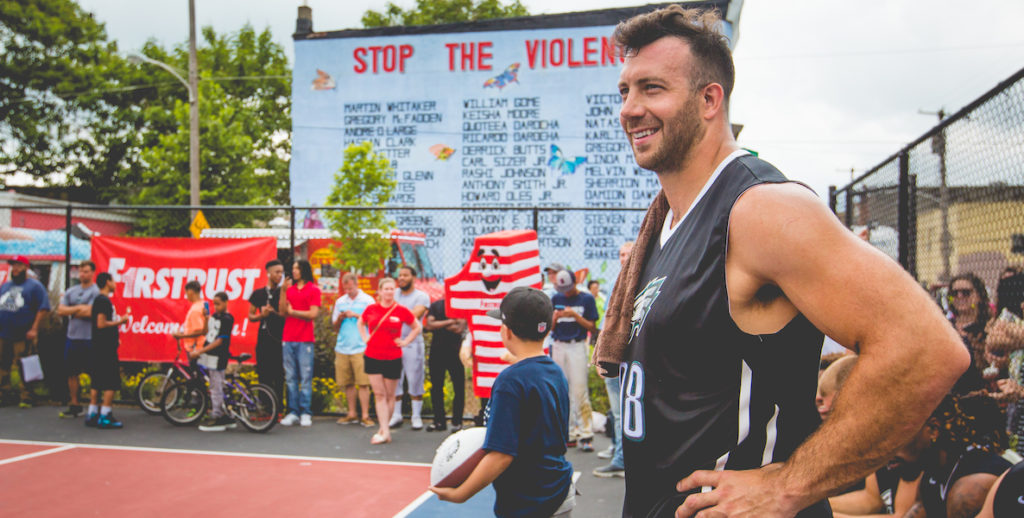“People fail to get along because they fear each other; they fear each other because they don’t know each other; they don’t know each other because they have not communicated with each other.” — Dr. Martin Luther King, Jr.
I haven’t been able to stop thinking about the video. We all saw a white man hold his knee on the back of George Floyd’s neck while he went from talking and breathing to not having a pulse and dying. How can anyone with any human compassion in them do that?
I can’t help but think about what I can do, and what I haven’t done.
I’m acutely aware that I don’t have the answers to what divides us; as a white male, my role is to approach this discussion with humility. I know I need to do better—and part of that involves me asking my African-American brothers and sisters how I can be a better ally in the fight for justice and equality.
But there is something in my background that I can bring to the discussion, lessons learned from my years in one of the most diverse workplaces in America—professional sports—and from my parents. My dad was a police officer before he was a city manager and he always told me and my brothers the hardest part about being a police officer was deescalating highly volatile, emotional situations.
That’s what is so horrible about the killing of George Floyd, like so many other instances in which black men and women have been killed by those sworn to protect them. George Floyd’s encounter with police wasn’t volatile at all. It was completely under control.
I’ve learned that embracing our differences can only enrich our lives and our communities. That means not only acknowledging our sad history of institutional racism, but also having the hard conversations about representation we need to have in order to dismantle systemic racism.
When I was a kid, my parents told me and my brothers to embrace people that are different. My dad used to say that for all the color and variety it would expose us to, exploring other cultures through international travel was like going to Disneyland for adults. My mom and dad drilled into our heads that different perspectives, different backgrounds, different cultures, different ways of doing things are where rewards in life can be found. “That’s where the magic is,” they’d say.
I’ve traveled a lot, but where I’ve really felt the power of my parents’ message is in my life as an athlete. A locker room is truly a magical place, a place where people of all different backgrounds come together to achieve mutually common goals. We don’t sit around talking about social issues so much as embody social change every day, by elevating “we” over “me.”
That diversity is an advantage and not a threat, just like my parents told me. When I retired from playing in the NFL I decided to continue my career with the Eagles. I made that decision because of how special it is to interact and create success with people of vastly different backgrounds.
As we all look for how to help, maybe we could all follow the lessons of the locker room. What kind of game-changer would it be if all Americans sought out fellow citizens of different backgrounds, people they’ve never connected with?
I often tell people I’m still chasing a Super Bowl but what I’m really chasing is being part of a Super Bowl team. I want to be part of the greatness of a diverse group of people who care about each other so much and will support each other no matter what. It’s funny, we talk about athletes being role models all the time but maybe the true model we should appreciate in sports is embracing diversity as a way to achieve success as a team.
When I started my foundation, Make The World Better, I did it because I wanted to do something positive in the community I lived in, but I really wanted to continue to meet and learn from people who I wouldn’t ordinarily interact with. In the last seven years I’ve made friends in four different neighborhoods that have given me much more than I could have ever given them, and we’ve built three amazing parks together with the fourth one in design now.
Maybe the most important thing I’ve learned is that if we are ever to move forward, representation is key. Everyone deserves a seat at the decision-making table. Of course, we remain a tribal people. We feel more comfortable around people who look like us, talk like us, even think like us.
But through sports and in my community work, I’ve learned that embracing our differences can only enrich our lives and our communities. That means not only acknowledging our sad history of institutional racism, but also having the hard conversations about representation we need to have in order to dismantle systemic racism.
It starts with those of us who are white saying what I’ve been feeling for the past week. White people in this fight need to have the courage to act even if it’s not comfortable or convenient.
To everyone I know who has dealt with racial, economic and social injustice, I am sorry. We haven’t done enough. As an individual and through my foundation, Make The World Better, I am recommitting now to finding ways to take on this fight against racial injustice together.

